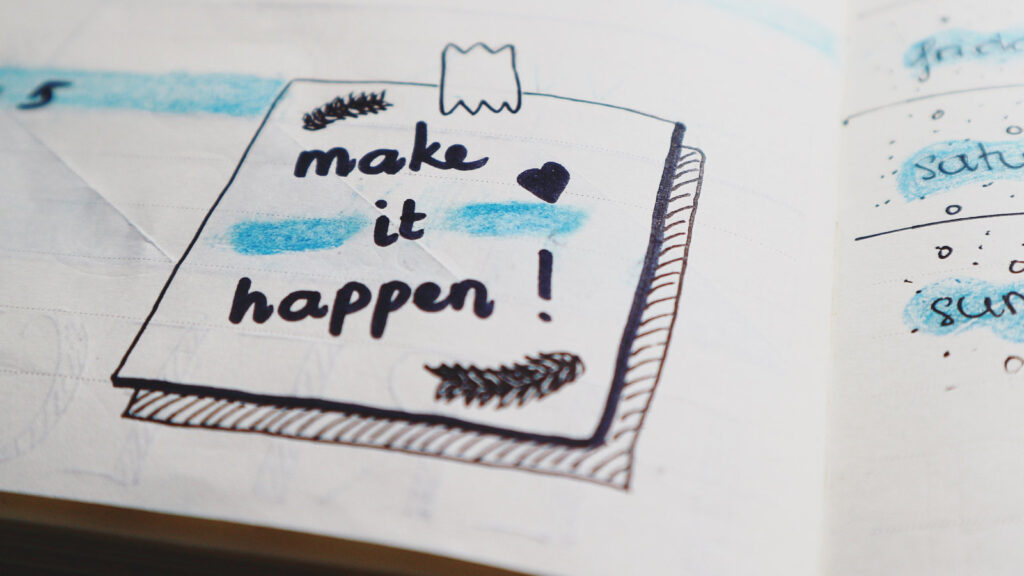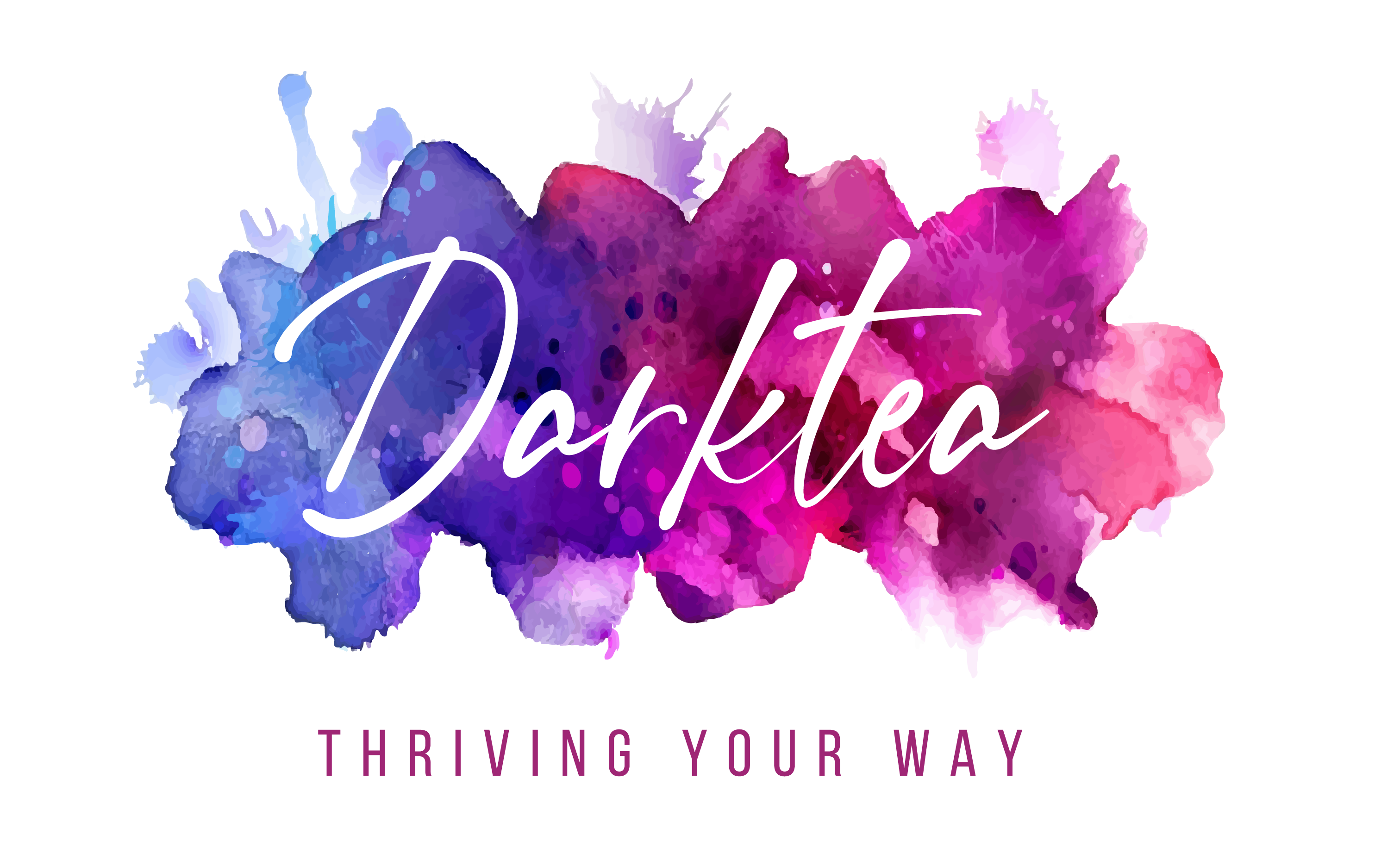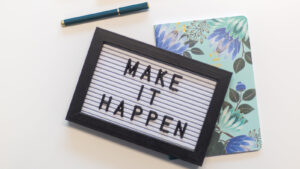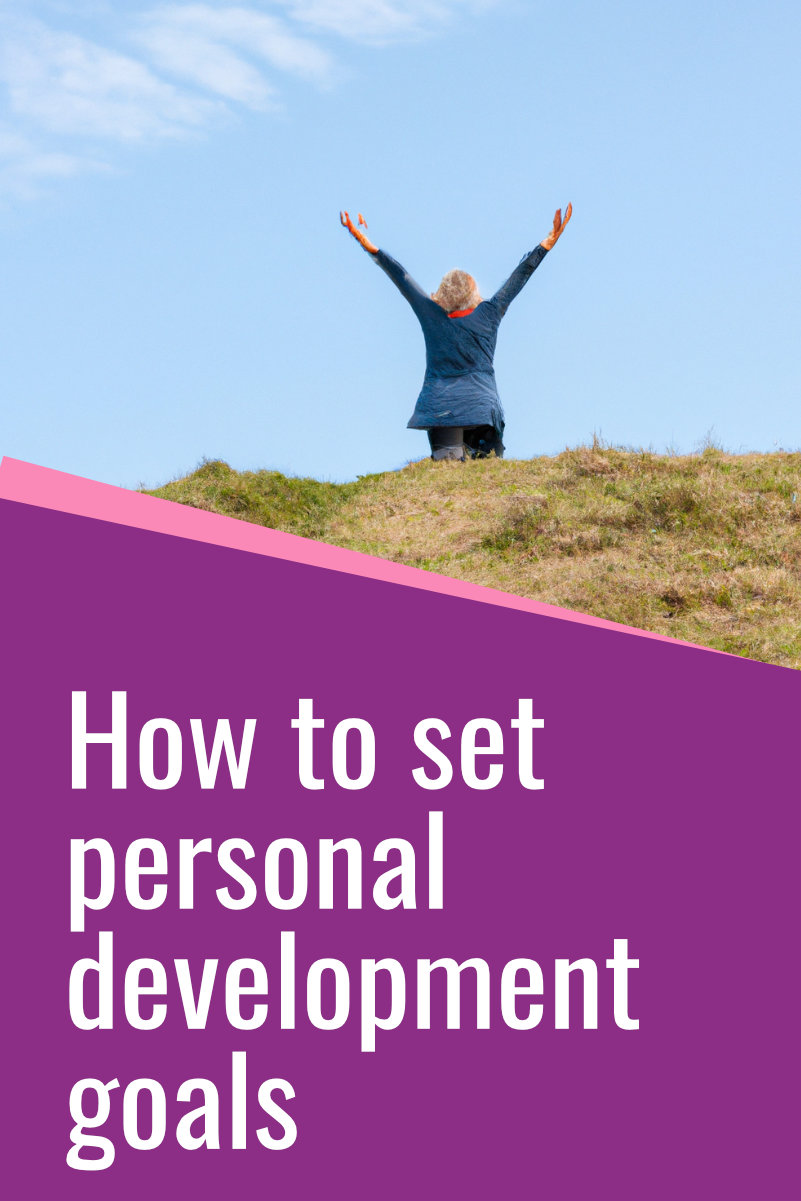Do you have personal development goals? Have you ever had them? I’ve been thinking about this a lot recently as I’ve just completed an online course for a professional qualification that has taken me 2.5 years, and I’m wondering what is next. And I’m in the process of writing the development aims in my work appraisal.
What are personal goals?
Personal growth goals should be an important part of everyone’s life. They are a statement of something you want to achieve and are way of working out what you want from life and what you need to do to achieve it.

Examples of development goals
Personal goals can be anything, of any size, from starting a new hobby to going on a 6 month holiday. They can be focused on your personal life or professional life and may be in areas such as:
- learn to face your fears
- improving your time management skills
- developing a reading habit
- learn something new
- meeting more people
- looking after yourself better
- letting go of limiting beliefs
- wake up earlier
- practice gratitude
- be more mindful
- developing a growth mindset
- developing positive relationships
- improving your physical health
- improve your public speaking skills
- starting morning exercise
Benefits of having personal development goals
Personal development goals give you focus and a sense of direction, which increases your chance of success. They also encourage you to be productive as you want to achieve the goal.
How To Write Personal Development Goals
Setting a lifetime goal maybe too big, so think about what you’d like to achieve in the next five or ten years. What is your ultimate goal? Think about what is important to you, where would you like to improve? What is your definition of success; can you visualise it? If you still don’t know, you may find some of these goal setting strategies useful tohelp you identify what you want.
Now you can break that into short-term goals that contribute towards the larger goal. This is because it is easier to achieve the smaller goals and feel like a success, which will lead to a more successful overall goal. Remember to be honest with your current situation and where you are limiting yourself.
You’ve probably heard about SMART goals:
S – specific
M – measurable
A – Attainable
R – Realistic
T – Time bound
Have you heard about these SMART goal alternatives?
SMARTER goals from Michael Hyatt
S – specific
M – measurable
A – Actionable – does it use an action verb e.g. run, complete
R – Risky – you need to be stretched outside your comfort zone
T – Time keyed
E – Exciting – are you excited at the prospect of achieving it
R – Relevant – is it relevant to your values, your large goals, period of life
SMILE goals from Michelle Reeves*
S – Success driven – is it connected to a specific successful result
M – Measurable
I – Individual – is it specific to you and under your control?
L – Long, medium and short term – does it fit into your long and medium ambitions with a plan from now to success
E – Exciting
DUMB goals from Brendon Burchard
D – Dream-driven – Is the goal aligned with your bigger vision for your life? Are you reaching for the stars?
U – Uplifting – Does the goal inspire you and feel positive, joyous and uplifting?
M – Method-friendly – Can you break the goal into smaller steps or habits? If not it is a task not a goal.
B – Behaviour-driven – Can you create triggers that remind you to take action towards the goal?
PACT goal from NESS Labs (I think)
P – Purposeful – Is it relevant to your long-term purpose in life as well as your life now?
A – Actionable – Can you take action towards the goal now?
C – Continuous – Are the actions you take repeatable with the possibility for continuous improvement?
T – Trackable – Can you track progress e.g. have you taken action today?
WISE (I can’t find the original source)
W – Written – Have you written your goal?
I – Integrated – Have all your goals in one place so you get an overview of what you’re working towards, including career goals, self-improvement goals, financial goals etc.
S – Synergistic – Do your goals work together or do they clash? Can some actions help you achieve more than one goal?
E – Expansive – Are you motivated and inspired by your goal? If not, think bigger? Can the goal expand as you make progress? Don’t let the goal hold you back.
Creating a plan, taking action and reviewing progress
Of course the point of creating goals is to take action to work towards them. Once you’ve identified your small goal you need to decide how you will achieve it and create a plan, for example will you join a class, create a standing order into your savings account, read a positive book or spend 15 minutes every day working on a relevant activity. Make sure you have the goal and your agreed actions written down as a reminder, but also so you can review your progress.

What are my personal development goals?
I do not find goal setting easy, as you’ll discover if you look through my archive. I like the idea of continuous self-development where I work on a little and often basis to keep me moving forward. It doesn’t always work, but I’ve learnt the most important aspect is perseverance, so I keep trying again and again. For example, one of the bad habits I’d like to change is going to sleep earlier. I know changing this will have a huge impact on my energy levels, mental health and ability to do more of the things I want. This is a goal I’ve been working on for decades (but I am making progress).
My current goal is to use my mornings to set my days up for personal success. I know that sounds like it doesn’t fit with any of the structures mentioned above, but I use daily trackers to focus on the details which are currently:
- get ready for bed at 23:15
- wake before 07:00
- meditate, exercise, journal, practice piano, get outside and do some housework before starting work
Over time I will bring bedtime and wake time earlier as I build the habits and routines to make that more realistic. I’d love to be waking before 6am.
Conclusion
I know that it seems daunting to set goals, but it is not as hard as you think. Remember, the most important point of goals is to focus your thoughts and action on moving you towards something you want.
What is your current personal development goal? What is your next goal?
“The purpose of setting a goal is not to hit the goal. The real purpose of setting a goal is to develop yourself into the type of person who can achieve your goals, regardless of whether you hit any particular one or not. Some goals you’ll reach, and some you won’t. It is who you become by giving it everything you have until the last moment—regardless of your results—that enables you to develop the mindset and behaviours that will help you achieve bigger and bigger goals for the rest of your life.”
Hal Elrod








 Change Your Thoughts – Journal Prompts
Change Your Thoughts – Journal Prompts